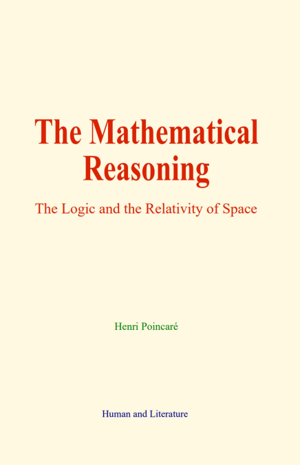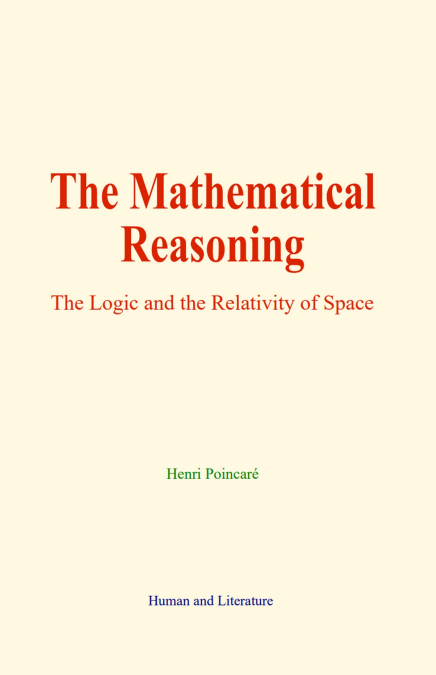
- Afhalen na 1 uur in een winkel met voorraad
- Gratis thuislevering in België vanaf € 30
- Ruim aanbod met 7 miljoen producten
- Afhalen na 1 uur in een winkel met voorraad
- Gratis thuislevering in België vanaf € 30
- Ruim aanbod met 7 miljoen producten
The Mathematical Reasoning E-BOOK
The Logic and the Relativity of Space
Henri PoincaréOmschrijving
The very possibility of mathematical science seems an insoluble contradiction. If this science is only deductive in appearance, from whence is derived that perfect rigour which is challenged by none? If, on the contrary, all the propositions which it enunciates may be derived in order by the rules of formal logic, how is it that mathematics is not reduced to a gigantic tautology? The syllogism can teach us nothing essentially new, and if everything must spring from the principle of identity, then everything should be capable of being reduced to that principle. Are we then to admit that the enunciations of all the theorems with which so many volumes are filled, are only indirect ways of saying that A is A?
No doubt we may refer back to axioms which are at the source of all these reasonings. If it is felt that they cannot be reduced to the principle of contradiction, if we decline to see in them any more than experimental facts which have no part or lot in mathematical necessity, there is still one resource left to us: we may class them among à priori synthetic views. But this is no solution of the difficulty it is merely giving it a name; and even if the nature of the synthetic views had no longer for us any mystery, the contradiction would not have disappeared; it would have only been shirked. Syllogistic reasoning remains incapable of adding anything to the data that are given it; the data are reduced to axioms, and that is all we should find in the conclusions.
No theorem can be new unless a new axiom intervenes in its demonstration; reasoning can only give us immediately evident truths borrowed from direct intuition; it would only be an intermediary parasite. Should we not therefore have reason for asking if the syllogistic apparatus serves only to disguise what we have borrowed?
The contradiction will strike us the more if we open any book on mathematics; on every page the author announces his intention of generalising some proposition already known. Does the mathematical method proceed from the particular to the general, and, if so, how can it be called deductive? Finally, if the science of number were merely analytical, or could be analytically derived from a few synthetic intuitions, it seems that a sufficiently powerful mind could with a single glance perceive all its truths; nay, one might even hope that someday a language would be invented simple enough for these truths to be made evident to any person of ordinary intelligence.
Specificaties
Betrokkenen
- Auteur(s):
- Uitgeverij:
Inhoud
- Taal:
- Engels
Eigenschappen
- Productcode (EAN):
- 9782381116464
- Verschijningsdatum:
- 2/09/2023
- Uitvoering:
- E-book
- Beveiligd met:
- Digital watermarking
- Formaat:
- ePub

Alleen bij Standaard Boekhandel
Beoordelingen
We publiceren alleen reviews die voldoen aan de voorwaarden voor reviews. Bekijk onze voorwaarden voor reviews.











